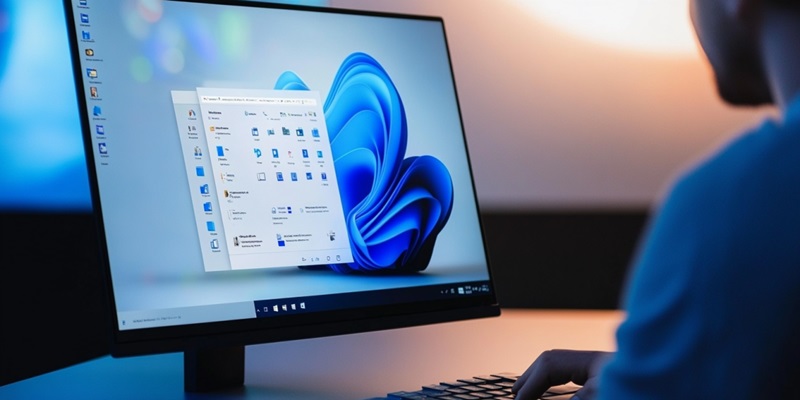Microsoft’s introduction of the new Recall feature in Windows 11 has ignited a flurry of controversy, largely centered around potential privacy and security concerns. Recall aims to capture snapshots of user activity every few seconds, allowing users to easily retrace their steps and revisit earlier activities. While the feature was designed to improve user experience by simplifying the process of accessing past actions, it has instead sparked significant backlash. Critics argue that such continuous recording could be invasive, posing potential risks to personal privacy and data security. In response to the escalating concerns, Microsoft has been compelled to reassess and modify its initial implementation strategy for this feature, indicating a significant shift in their approach.
Addressing Privacy Concerns
Initially, Microsoft intended Recall to be a default feature in Windows 11, meaning it would be enabled automatically without any user intervention. However, mounting concerns from users and privacy advocates have forced the company to reconsider this strategy. The backlash prompted Microsoft to make Recall an opt-in feature, which means users will now have to actively enable it rather than finding it enabled by default. This change aims to address the privacy issues highlighted by critics, ensuring that users who prefer not to have their activities recorded can easily opt out. The opt-in model reflects a careful consideration of user preferences and concerns, demonstrating that Microsoft is attentive to the feedback from its user base.
In more recent developments, Microsoft has gone a step further by offering an option to completely uninstall Recall from the operating system. According to sources familiar with the matter, this will be facilitated via a new Control Panel option under Programs and Features. Users will be able to turn Windows features on or off, thereby removing Recall entirely if they so choose. This adjustment provides an additional layer of control over user privacy, enabling those who are particularly concerned about data recording to eliminate the feature altogether. By introducing these changes, Microsoft aims to meet the growing demand for user control over personal data and to mitigate any potential privacy risks associated with continuous activity tracking.
The Implications for Microsoft’s Strategy
This series of changes reflects a broader trend in the tech industry where user demand for greater control over personal data is becoming more prevalent. Increasingly, technology firms are under heightened scrutiny regarding their privacy practices, and Microsoft’s quick response indicates its acknowledgment of these concerns. The company’s proactive adjustments to the Recall feature signify a commitment to addressing security and privacy issues head-on. However, this pivot also carries significant implications for Microsoft’s overall strategy. When the feature was first conceptualized, the company anticipated a positive reception, assuming Recall would be a valuable addition welcomed by users. The necessity to revert to an opt-in feature and offer uninstallation capabilities, however, reveals that Microsoft may have underestimated the extent of privacy concerns among its user base.
This situation underscores the need for Microsoft to strike a delicate balance between innovative features and user expectations regarding privacy and control. Not only does it signal a need for more rigorous internal assessments of potential privacy implications during the development phase, but it also highlights the importance of engaging with user feedback in shaping product features. By reacting promptly to the concerns raised, Microsoft has shown its willingness to change course in response to legitimate privacy issues. This adaptive strategy is essential for maintaining user trust and ensuring that new features align well with the values and expectations of the user community.
Aligning with Industry Trends
Microsoft’s new Recall feature in Windows 11 has sparked intense debate, primarily due to concerns over privacy and security. Designed to enhance user experience by capturing snapshots of user activity every few seconds, Recall aims to make it easier for users to retrace their steps and revisit past activities. Despite its intention to simplify the process of accessing previous actions, the feature has faced substantial criticism. Opponents argue that continuous recording of user activity could be highly invasive, presenting serious risks to personal privacy and data security. Vocal critics worry that such a feature could lead to unauthorized surveillance or misuse of collected data. Responding to the growing outcry, Microsoft has been forced to reconsider and adjust its initial implementation strategy for Recall, signaling a major shift in their approach to maintain user trust. The company is now exploring ways to improve the feature while addressing these valid concerns. This move underscores Microsoft’s commitment to balancing innovation with the need for stringent privacy and security measures.

